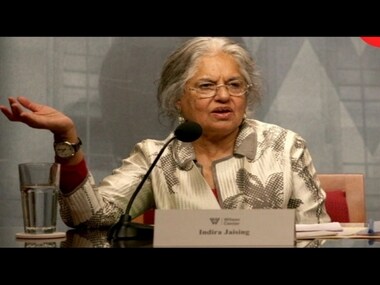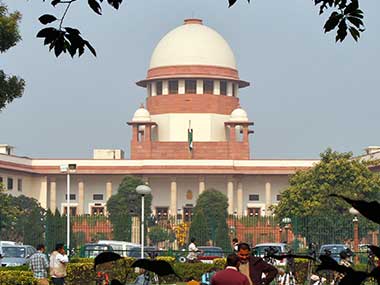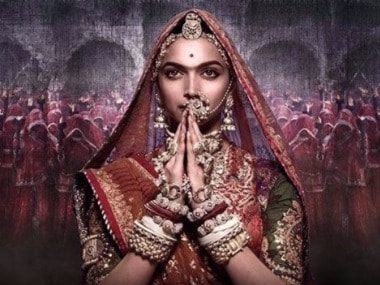Friday will be a busy day for the Supreme Court of India. A day after deciding that the politically-sensitive 70-year-old Ram Temple-Babri Masjid title dispute will be treated as a "pure land dispute", the apex court will take up a PIL filed by senior lawyer Indira Jaising for live streaming of proceedings in the Supreme Court.
Jaising had approached the top court demanding live streaming and video recording of cases of national importance on 18 January when the Supreme Court was divided over questions of transparency in its functioning.

File image of senior Supreme Court lawyer Indira Jaising. Image courtesy: News18
In her petition, Jaising had said that live telecast of cases (of national importance) will increase access to courts, and will "negate the chances of any misreporting, errors or second-hand information".
A report in Live Law, however, added that Jaising's petition acknowledged that the court may place restrictions on such videography in cases involving countervailing interests of privacy, such as family law and criminal law cases.
Arguing that citizens have a right to information, Jaising contended that the PIL was to advance the rule of law and bring accessibility and transparency in the administration of justice.
Minority status for Hindus in Jammu and Kashmir
The Supreme Court will also take up a PIL seeking minority status for Hindus in Jammu and Kashmir. In December 2017, the apex court observed that it cannot direct the Jammu and Kashmir legislature to legislate on the issue and posted the matter for hearing after eight weeks.
The Supreme Court had asked the Centre to deliberate on constituting a minority commission in Muslim-majority Jammu and Kashmir. A PIL filed in the Supreme Court in October demanded that Hindus be notified as a minority community in eight states, including Punjab and Jammu and Kashmir, and be given legitimate benefits meant for them.
Advocate Ashwini Kumar had filed the PIL and sought minority status for Hindus in Mizoram, Nagaland, Meghalaya, Arunachal Pradesh, Manipur and Lakshadweep apart from Punjab and Jammu and Kashmir.
Citing the 2011 Census, Kumar had said that the Hindus were in minority in eight states — Punjab (38.4 percent), Jammu and Kashmir (28.44 percent), Manipur (31.39 percent), Arunachal Pradesh (29 percent), Meghalaya (11.53 percent), Nagaland (8.75 percent), Mizoram (2.75 percent) and Lakshadweep (2.5 percent). He contended that Hindus were being treated as a majority in these states despite being minority in population and were illegally being deprived of benefits meant for minority communities, PTI had reported.
Apart from the aforementioned cases, the Supreme Court is also expected to hear a PIL seeking ban on firecrackers. The apex court may also issue an order on the juvenile justice system, News18 reported.
Published Date: Feb 09, 2018 09:57 AM | Updated Date: Feb 09, 2018 09:57 AM








